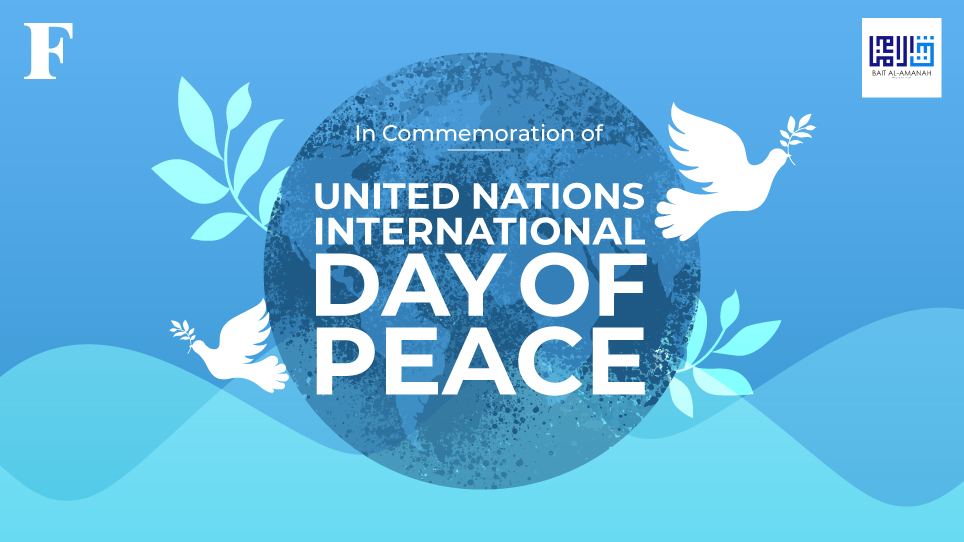
KUALA LUMPUR: The United Nations International Day of Peace 2022 falls on the 21st of September and is declared a day devoted to strengthening the ideals of peace through observing 24 hours of non-violence and cease-fire.
The year 2022’s theme is “End Racism. Build Peace.” It is an effort to create a society free from racism and prejudice based on race. A society where empathy and compassion prevail over prejudice and hostility. A world of which we can be proud.
In the spirit of this year’s theme, Forest Interactive invited Simraatraj Kaur, a Research & Advocacy Analyst from Bait Al Amanah, an independent Malaysian think-tank center responsible for conducting studies and research on global and national issues, for an in-person session. Kaur has led several projects on migrants, refugees, and stateless individuals.
The goal of this internal engagement session heeding to UN Sustainable Development Goals (SDG) 10 (Reduced Inequalities) and SDG 17 (Partnership for the Goals), was to minimize xenophobic attitudes against refugees, impart knowledge on the pressing issue and educate our talent on how refugees come to be.
As Kaur explained, most people in general have a bleak understanding of what and who refugees are, what they go through, and the consequences of not having enough protection in their everyday lives. She emphasized that regardless of the chaos and conflicts around the globe, one should aspire to touch on understanding refugees’ existence and the importance of being an ally.
Refugees, according to Sim, are persons who are outside their country of origin for reasons of feared persecution, conflict, generalized violence, or other circumstances that have seriously disturbed public order and, as a result, require international protection.
To be classified as a “refugee” one must be outside of their country or habitual residence. Refugees are prone to fear the harm that amounts to persecution related to race, religion, political opinion, or nationality. Refugee is also unable to seek protection anywhere in their country.
To further clear the misconceptions of displaced persons, Sim explained the difference between a refugee, migrant, internally displaced, and asylum seeker just so a better understanding could be noted about each group. For instance, Sim elucidated that Refugees are forced to flee the country due to persecution, whereas internally displaced are forced to flee but do not cross the border to leave. An asylum seeker is a refugee who is seeking protection, but no country has determined whether or not the person meets the definition of a refugee. Migrant, on the other hand, refers to a person who voluntarily moves either temporarily or permanently.
Within ten years from 2011, there has been a concerning increase of people being forced to flee their homes, summing to 89.3 million, with 2.71 million being refugees showcasing half of them as children. Millions of them are classified as stateless as they are denied a nationality, leading to a further lack of access to basic rights. An oxymoron statement to modern society.
The 1951 Refugee Convention is a law that governs refugee protection globally. What entails in the law is the definition of refugee and the principle of non-refoulment, highlighting that refugees should not be forced to return to their country of origin where they may get persecuted.
In terms of the historical and legal context of refugee protection in Malaysia, did you know that Malaysia currently hosts the largest number of refugees in Southeast Asia? As a matter of fact, as of 2021, there are 179,390 refugees and asylum-seekers registered with United Nations High Commissioner for Refugees (UNHCR), and the number is expected to increase to 200,000.
This is concerning because even with their attempt to have an administrative system in place, the domestic law does not protect refugees, and considers them as ‘illegal immigrants’ putting them at risk of arrest and detaining them from basic rights.
Malaysia has been trying to implement a system that seemingly protects refugees, which directly contradicts domestic law. Despite this, Malaysia still gets a plethora number of refugees because of the geographical proximity. However, this does not mean the Malaysian government is receptive to accepting refugees. Malaysia’s government in past used to aid refugees better with resettlement and repatriation, but that is no longer the case now. Refugees in Malaysia are denied basic rights such as access to ranging from movement, health, education, work, the justice system, and documentation. Meaning that they have restricted access to rights to work, medical care, access to public schools, and a proper justice system. The UNHCR documentation is not legally recognized in Malaysia, and the refugees are always at the stake of being arrested.
Moreover, some manufacturing companies here offer informal job opportunities to these refugees, which come at the cost of underpaying, exploitation, and lack of safety. Refugees, coupled with these problems also have to deal with corrupt police officers and are always at the risk of marginal intersectionality discrimination.
In Malaysia, the largest population of refugees is Burmese, followed by Rohingyas, Chins, and others like Myanmar, Kachin, and more. Of which 68% of refugees are men, 32% are women, and a total of 45,730 are children.
One of the biggest pertaining questions is can a refugee leave the country? Yes, they can. It is done through repatriation, resettlement, and local integration. Repatriation defines as sending the refugee back home but with an agreement that they can sustain to build their own life. Resettlement, often assisted by UNHCR, is the transfer of refugees from an asylum country to another State that has agreed to admit them and ultimately grant them permanent residence. This occurs when the refugees seek to gain the same rights as the citizens in the country where they sought refuge, and make their country their new permanent home. Lastly, Local integration enables refugees to live amongst or alongside the host population without fear of systematic discrimination.
In Malaysia, only a handful of politicians are advocating for refugee rights. Currently, the foreign minister is pushing to fund alternative learning centers in the country, but the future is unsure. The ongoing debate is whether the refugees are ready to put in efforts for their rights to sustain them or if this is just a one-time thing. Only time will tell if the government is willing to fight for refugee rights. However, we can do our part to help or emphasize the refugees. Changing one’s perception towards refugees and reducing bias or prejudice against them goes a long way.
About Forest Interactive
Founded in 2006, Forest Interactive develops scalable mobile platforms to connect mobile operators, content providers, and game publishers with their subscribers. With over 15 years of industry experience, Forest Interactive has expanded to include a diverse workforce of 20+ nationalities in 16 regional offices.
Delivering content subscription services, digital voucher and e-commerce platforms, and mobile apps for all ages, Forest Interactive operates in more than 30 countries, servicing 90+ mobile operators and 100+ content partners with the capacity to reach over one billion subscribers worldwide. To learn more, visit forest-interactive.com.
 Company Profile
Company Profile Brand Identity Guidelines
Brand Identity Guidelines